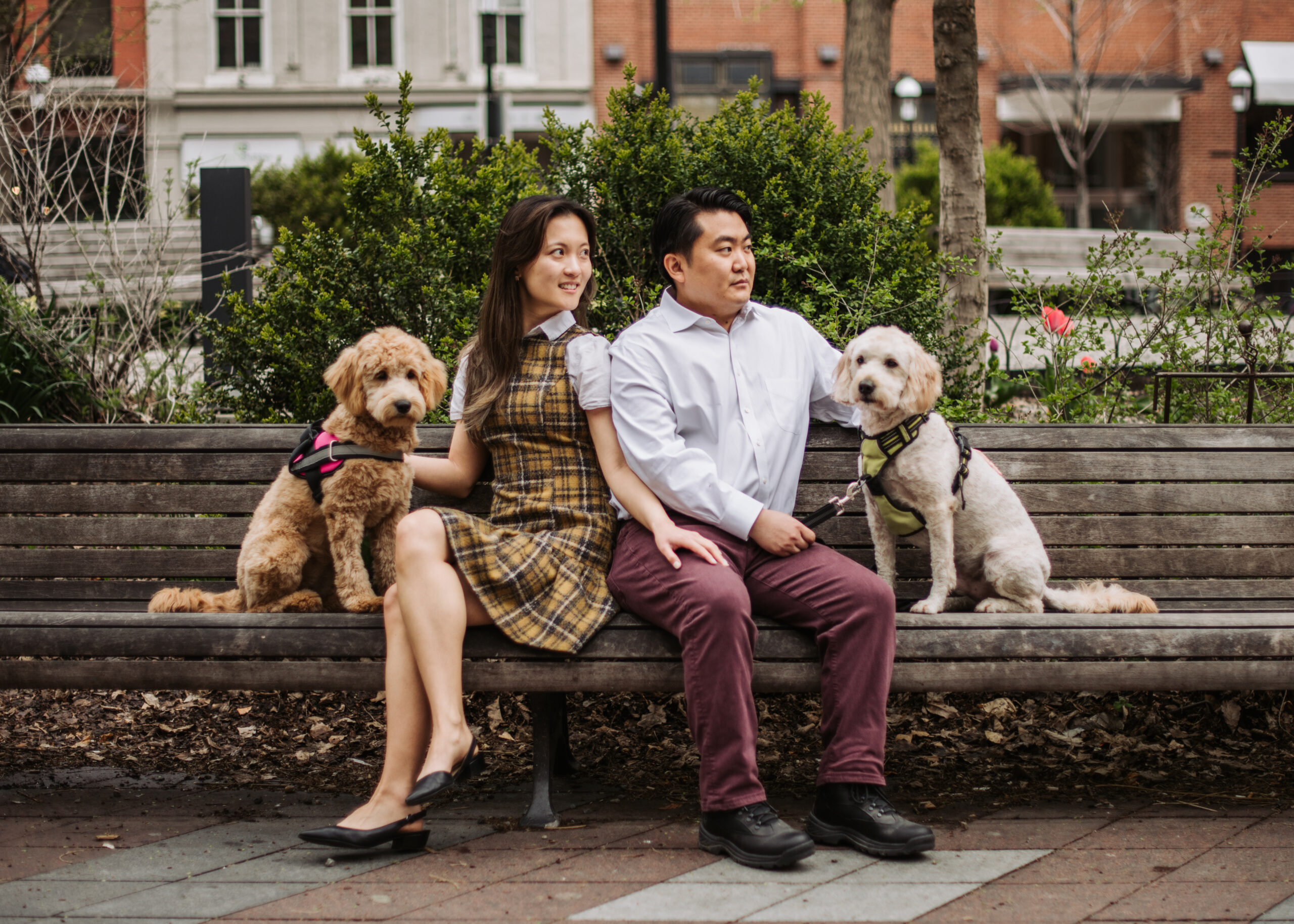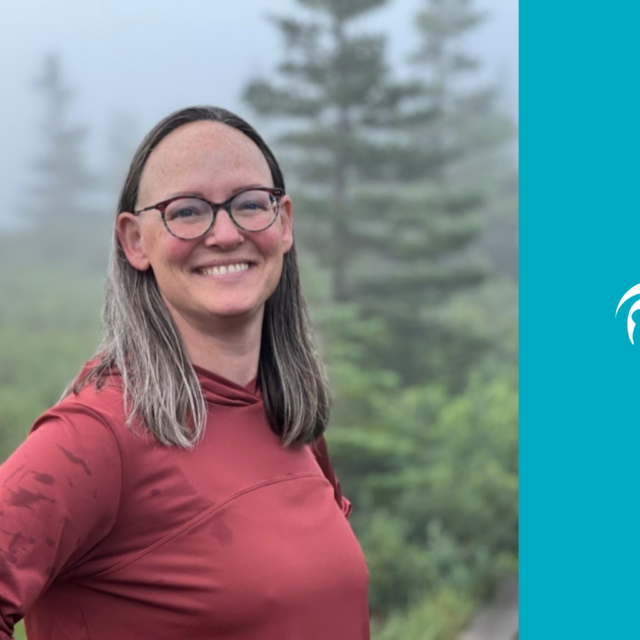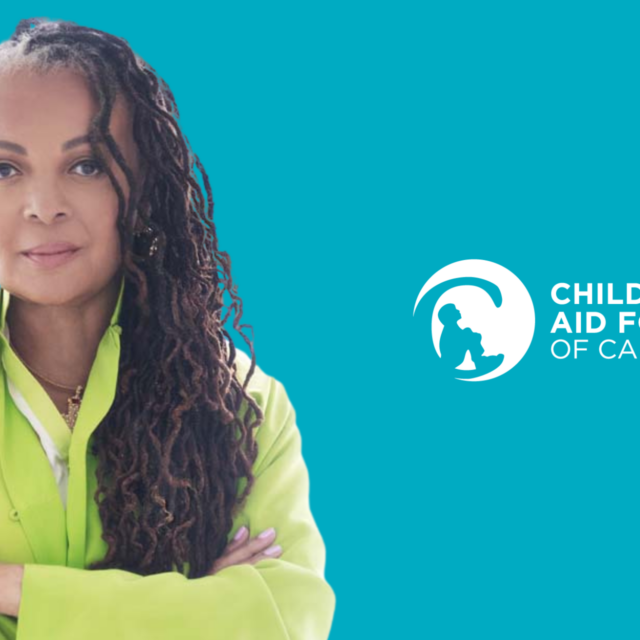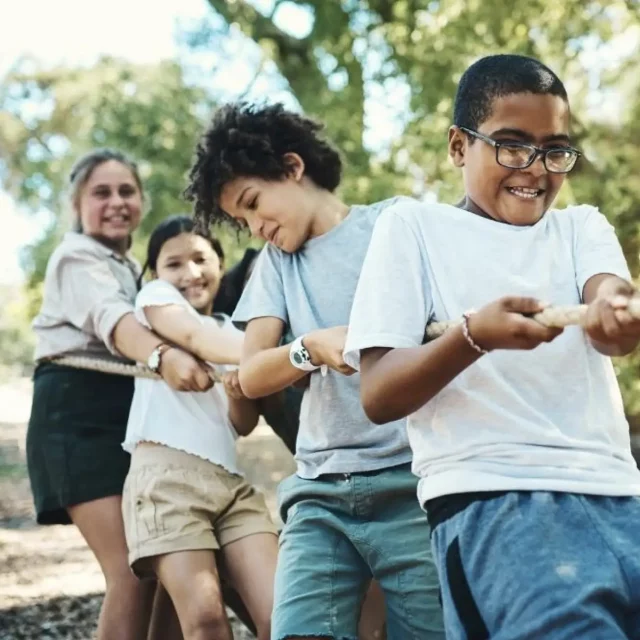Ben Metzler and his spouse, Diana Sun, have been ardent supporters of Children’ Aid Foundation of Canada since 2022. Adopted by a loving and supportive family as an infant, Ben is passionate about helping children and young people find their own sense of belonging and home. Now, Ben and Diana donate their money, time, and expertise to Children’s Aid Foundation of Canada to bring us closer to our shared vision of a future where the children and youth we serve have the strength and resilience to create a lifetime of their own successes. We sat down with them to delve deeper into their commitment to helping children in care by joining our community as mission delivery donors.
You both have generously donated to CAFC – why do you think it’s important to support children, youth, and families involved in child welfare?
D: For both of us, this has been something that’s very much near and dear to our hearts. As a family doctor, I see a lot of child and youth issues clinically. I was in public health as well and you see these issues and you don’t really see a solution sometimes, so I think that’s partly why we got involved with the Foundation, whether it’s donating or volunteering our time. It’s our way to try to be a part of the solution. A lot of that work that actually affects meaningful and lasting change is being done by organizations like Children’s Aid Foundation of Canada and we really wanted to support that.
B: I guess there’s the practical side of it too – children in general are a vulnerable population and particularly children and youth in care and transitioning out of care; how that process unfolds is incredibly important in terms of affecting their entire lives going forward. I myself, having been adopted, think about how lucky I was growing up with such loving and supportive parents and family. So, I can’t really imagine how hard it must be for these kids, thinking about some of the challenging experiences they’ve gone through. It’s unbelievable the amount of resilience these young people have, just to get to an equal playing field.
Ben, you also sit on our Campaign Cabinet and are closely involved with some of our behind-the-scenes work – what drives you to dedicate your time and expertise?
B: I actively volunteer with Big Brothers, Big Sisters Toronto, which is one of the many partners that the Foundation has. And before that, with the junior youth group, but volunteering with the Campaign Cabinet this has been a really eye-opening experience because I’ve never seen this work from the donor or the management side before. There’s so much incredible talent involved here, right? From Valerie and all the employees to the volunteers. It’s just been one of those things where I’m hoping I can have as much of an impact as possible. Now, having said that, a lot of volunteerism is a rewarding experience in and of itself, as well. My contribution is very modest and humble, compared to the other donors and the staff – in a way I think of myself as learning as much as volunteering.
With so many charities out there vying for support, what is it about CAFC that resonates with you?
B: I think that this is a cause that’s incredibly important and it’s one that I think people universally say, yes, I agree and I’m supportive. But at the same time, it’s very easy to overlook or not support this work because to most people it’s less relatable than, say, supporting a hospital because everyone has health problems at some point. Not everyone, frankly, can relate to children and youth in care. So despite this cause being one of the most obvious things that needs to be supported and helped, it’s often overlooked compared to some other charities.
In your opinion, what is the most important issue impacting these populations that Children’s Aid Foundation of Canada helps tackle?
B: For me, it’s that transitional period as young people begin aging out of care. I can’t imagine navigating life on your own at that age. First off, I couldn’t have gone to university without family support, and I certainly don’t think I could have gotten through it without my loving, supportive parents. Sometimes we, as a society, and our government really let people down, right? Just saying you’re an adult, which is true I guess legally, but it’s such an unfair disadvantage to just say “okay, now go forth and be independent.” And so, helping young kids who are transitioning out of care is such an important impact that they [the Foundation] are having. And you can really see it at events like Stand Up For Kids Night where these amazing young people are celebrated for their accomplishments – you can see all the promise and all of the incredible optimism and the potential that’s going to be realized because of this.
What would you say to someone who is considering supporting the Foundation to help children, youth, and families?
B: Please take a look at the Foundation’s work and the magnitude of the impact on children and young people. I’m also always happy to talk if anyone ever wants to reach out to me – I’m happy to share my own experiences as a volunteer because it’s such an important cause and well-run organization. There’s an incredible cast and crew that keeps the organization running and makes a positive difference.
D: It’s so important for other potential donors to realize that this kind of work doesn’t just happen overnight – it takes a lot of human power. It takes a lot of stages to get from, “Okay, here is the money” to here is the impact. That’s one thing we really like about the Foundation – they use evidence to inform their approach – the interventions and programs are all rooted in numbers and very data-driven. The organization does the research into what programming actually is making an impact and they constantly reassess and monitor these programs and this is exactly what we like to see. We like to see transparency, but also, we like to see the thought process that goes into it.
Looking ahead, what else would you like the Foundation to do and how do you see your continued support contributing to that?
B: Well, I think that they’ve already identified and are tackling this since it’s in the strategic plan but recognizing that there is an asymmetry of outcomes and that there is a disproportionate impact, particularly to certain visible minority populations in this country. I think it’s great that they’re really aware of and sensitive to that fact. So, it’s not a correction as much as a continuation of their work. When people support the Foundation, the organization can continue to cultivate and find new partners to try to address that particular challenge and also continue to have incredible leadership and an organization that’s self-aware, adaptive, and responsive.
Want to learn more about how you can make a difference in the lives of children and youth in care? Visit our How to Help page.



